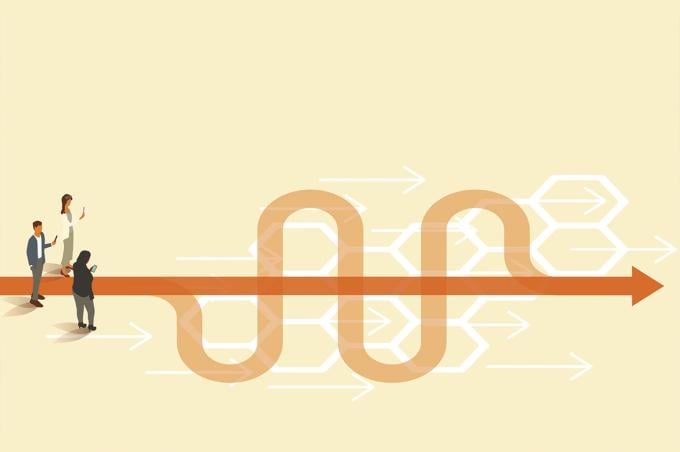When it comes to staving off the ill effects of excessive workloads that can lead to emotional exhaustion, physicians desperately need to know that the leaders at the health care organizations where they work prioritize their well-being and safety, according to a recently published study that also details how levels of organizational support vary widely by physician specialty.
For the study published in the Journal of Healthcare Management, researchers surveyed more than 7,500 physicians about the support given to them by the health care organizations that employed them between 2020 and 2021. The responses presented a snapshot of how physicians in several specialties felt their well-being was prioritized, revealing a link between perceived organizational support, burnout and professional fulfilment.
“Evidence suggests that efforts by health care organizations to improve the practice environment and address organizational and systems issues can reduce clinician distress and drive progress in the movement to reduce burnout,” says the study co-written by AMA experts Lindsey E. Carlasare, Michael Tutty, PhD, MHA, and Christine Sinsky, MD.
“Physician burnout is well-documented and predates the COVID-19 pandemic. However, the pandemic exacerbated many existing drivers of burnout and added new challenges that worsened work experiences for many physicians,” the study says, pointing out that burnout reached a historic high of 63% in 2021.
Though the physician burnout rate has dropped below 50% since then, the statistics continue to show that an alarming number of physicians are suffering the consequences of overwork and overstress. And the toll on physicians isn’t the only cost—patients, health systems and society at large all feel the effects of burnout.
As the leader in physician well-being, the AMA is reducing physician burnout by removing administrative burdens and providing real-world solutions to help doctors rediscover the Joy in Medicine™.
Data reveals gaps in physicians’ experiences
The amount of organizational support, which was demonstrated by an organizational support score (OSS) that can range from zero to 10—and its resultant impact on burnout and professional fulfilment—was not felt equally among the survey respondents. Women physicians reported less organizational support, as did physicians with children younger than 18 years old. Meanwhile, physicians 65 or older had the highest perceived organizational support.
Doctors in the following physician specialty areas reported the lowest perceived organizational support, as demonstrated by the mean OSS for each specialty group:
- Emergency medicine: 5.04.
- Anesthesiology: 5.23.
- Otolaryngology: 5.41.
- Radiology: 5.54.
- Neurosurgery: 5.56.
- General pediatrics: 5.62.
- Psychiatry: 5.66.
- Pediatric subspecialty: 5.72.
- Preventive medicine and occupational medicine: 5.72.
- Family medicine: 5.75.
The physician specialties that reported the highest amounts of organizational support, as demonstrated by the mean OSS for each specialty group:
- Pathology: 6.56.
- Radiation oncology: 6.36.
- Ophthalmology: 6.31.
- Neurology: 6.20.
- Dermatology: 6.16.
- Urology: 6.04
- Orthopaedic surgery: 6.03.
- Physical medicine and rehabilitation: 5.91.
- General internal medicine: 5.84.
- General surgery: 5.81.
The study’s authors concluded that health care organizations can use the data in many ways, including prioritizing help for the physicians at high risk of burnout.
“While organizational support needs to be improved for all physicians, there appears to be an acute need to improve the support provided to women physicians, physicians with young children, physicians working long hours and physicians in certain specialties,” the study says.
Mitigating burnout starts with well-being
Fortunately, there are steps that health leaders can take to tackle burnout and boost physicians’ personal and professional fulfillment. One effective strategy, says the study, is making physician well-being a key part of a health care organization’s mission.
“Organizational support—defined as the extent to which an organization, through its policies and practices, prioritizes employee well-being—has been associated with lower odds of burnout, depression and intent to leave patient care among internists,” the study says.
For each one-point increase in reports of organizational support, there were lower odds of emotional exhaustion and depersonalization among responding physicians. Each one-point increase also was associated with a 21% less chance of burnout and 32% greater chance of professional fulfillment.
“Lower perceived organizational support is also associated with mental distress and stress, even after adjusting for multiple confounders,” the study says.
While the early phases of the COVID-19 public health emergency presented overwhelming pressure on physicians struggling in the face of too much work and too little time in which to do it, “greater feelings of value and support from one’s organization are associated with lower stress, lower intent to reduce work hours and intent to leave practice and lower odds of COVID-19-related post-traumatic stress disorder symptoms,” the study says.
The results show that the environment in which physicians practice has an impact on how much or little burnout they feel, and their professional fulfillment is driven in no small part by the actions their leaders and organizations take to prioritize their well-being and to display their regard for their hard work and dedication.
“In addition, experiences of burnout and career satisfaction can be shaped by how well leadership seeks input from, informs, mentors and recognizes individuals for their contributions,” the study says.
Particularly valued by survey respondents were efforts taken by their leaders to manage the public health emergency’s impact, including by “taking appropriate steps to protect workers from COVID-19 infection, preparing them to perform their duties, providing timely information to physicians and listening to and understanding workers’ needs and concerns.”
Learn more with an AMA STEPS Forward® playbook on the importance of feeling valued and how organizations can support physicians.
AMA STEPS Forward open-access toolkits offer innovative strategies that allow physicians and their staff to thrive in the new health care environment. These resources can help you prevent burnout, create the organizational foundation for joy in medicine and improve practice efficiency.




